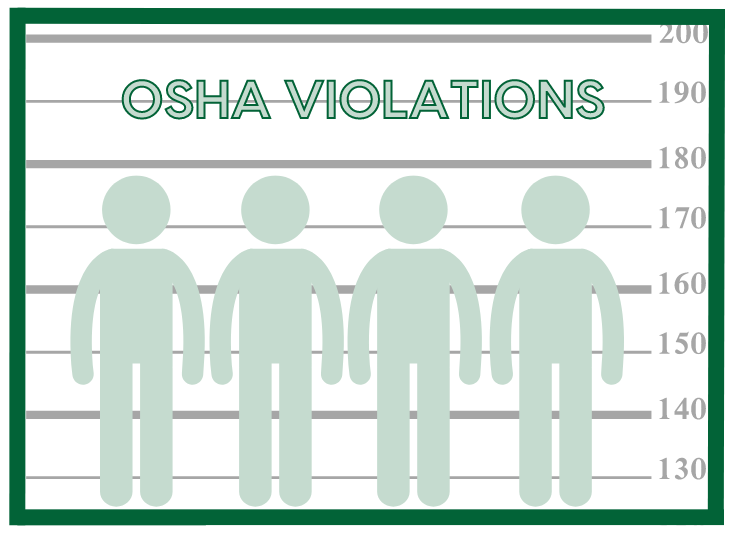Controlled Substance Managers: Ready for a DEA Audit?
Does your role include overseeing the management of controlled substances—including their disposal and destruction? Then you face the reality that the Drug Enforcement Administration (DEA) may audit your operations—at any time, and without warning.
If so, are you prepared? If not, readiness should begin at once to avoid noncompliance, thousands of dollars in fines, and even imprisonment. Then there is the negative publicity and interruption to operations.
Fortunately, there are proven guidelines and protocols that can make your organization fully compliant, and eliminate any gaps in security and accountability. For the best results, your protocols should be data-driven, and leverage modern, cloud-accessible inventory and stock control systems.
DEA Audits: Risks Across Industries
Perhaps you are a manager or administrator in a pharmacy, hospital, corrections center, or other organization handling drugs. In any of these and similar environments, you need a solid drug reverse distribution control system in place.
Unfortunately, for many organizations, proactively attaining audit readiness and detecting any shortcomings in the chain of custody (or elsewhere) is a challenge. The internal review and improvement process can be a burden. It requires time, effort, money, and managerial focus— valuable assets most managers would prefer to expend on core business functions.
Nevertheless, establishing such a control system is also a great way to improve operations, across the board, before anything goes wrong. You can consider it an opportunity to raise your game—a way to boost the security, efficiency, and accountability of your organization. Instead of playing catchup, you can know, in advance of an official review, that your processes are sufficiently hardened and compliant.
For instance, a proactive readiness program can enable more visibility into your workers’ activities—as well as the flow of the controlled substances from the moment they enter your facilities. And on the back end, you can reliably track the drugs from your loading dock to their final destruction or delivery point. This also can provide administrative peace of mind—and ensure you and your stakeholders are meeting legal and performance commitments.
Be Ready for DEA's Knock
The DEA's agents do not schedule audits with the organizations they oversee. In effect, from a manager’s point of view, an audit can occur at any time. Once the agent arrives, the audit may require a day or more—and managers should anticipate every potential phase of the review.
Thorough preparation for an audit—which includes creating protocols and documentation, and fielding well-trained and ready employees—ensures that regular operations continue unhindered. To understand the best way to prepare for the audit, managers should consider the following daily tasks or operational areas affected, which can include:
- Receiving
- Processing
- Storing
- Reconciliation
- Shipping
DEA Inventory Readiness
Managers should also consider keeping inventories accurate and easily accessed via:
- Timely processing up-to-date data entry
- Quality control measures
- Proper packaging and labeling
- Current records
- Familiarity with storage layout
- Regular facility housekeeping
- Full staffing with proper employees
DEA Audit: What to Expect
The audit will involve a series of reviews of individual components of the drug lifecycle. These reviews include:
Order Review: The audit opens with a review of a handful of orders and all their documents, and includes:
- Completed orders
- Orders in process
- Orders in storage
Return Order Number (RON) review: The audit will include (but won't be limited to) reviewing RONs. (The RON is the unique number issued for a particular return.) This number enables the tracking and coordination of all associated information about the shipment, across all relevant databases. It enables access to information about the:
- Customer
- Sender
- Shipper
- Inbound manifest tracking number
- Inventory
- Manufacturer
- Related safety data sheets (SDSs)
- Product disposition
- Outbound manifest tracking
- Destruction and related certificates
Random order selections review: During the audit, the agent may also ask to look at a previous order—one identified in the ARCOS reporting database. (This is a comprehensive DEA drug reporting system that tracks controlled substances from point of origin to sale and distribution.) Or it could be a random selection from an open shipment report. The information will in either case include:
- Licenses and Registrations: The agent will review the organization’s DEA registration (a federal certificate) and state license.
- Documents: In addition to the above-mentioned documentation, agents will closely review 222 Forms and Form 41s.
- Security: Agents will review and audit the security plan—with particular focus on access control, physical protection, and intruder detection.
- Internal Audits of Disposal Sites: This ensures the proper destruction of waste in the most environmentally sustainable way possible. It can include:
- Air/waste permit status
- Insurances
- Regulatory compliance
- Enforcement actions
- Various other key indicators, consistent with a third-party waste audit
Reviewing “the count”: The agent is also likely to review the industry count. The auditor will select any given live order and request the internal team to pull the related paperwork. The agent may then require the employee to retrieve the physical order from its secured storage location. It will be inventoried and checked against what was recorded when received—and matched to what the customer listed as shipped.
The components reviewed will involve:
- Licenses and registrations
- Orders
- Inventories
- 222 Forms
- Form 41
- Shipping documents
- Standard operating procedures (SOPs)
- Disposal site audits
- Receiving
- Drug shipment routes
Review of the processing requirements in effect during the reception of drugs at a reverse distributor includes looking at the:
- Timing
- Vaults/cages
- Destruction
- Shredding/consolidation
- Waste-to-energy/incineration
- Witnesses necessary for completion
Review of the return paperwork will involve auditing:
- Form 41
- Certificate of destruction (COD)
- Tracking data
Get DEA Audit Ready—and Improve Your Organization
Again, we recommend you view the process to prepare for an audit as an opportunity. It is a way to review operations and paperwork and accountability processes—and improve them. We have a few suggestions for you, as well. They include:
- Consider using electronic solutions to assist with data keeping and paperwork
- Practice audits ahead of time and train staff for them
- Take them very seriously—flunking can have major consequences to your organization and its operations and reputation
Partnering for DEA Audit-Prep
As we’ve seen, audit readiness is complex, time-consuming, and a drain on administrative resources. It is also absolutely necessary for compliance. One way to ease the path to preparation is to turn to a partner licensed in your state (we are operational in Massachusetts and other venues—with more states coming online). This requires due diligence, as our blog has already noted.
At Triumvirate Environmental, our team members are ready to assist you to full DEA-audit readiness. Ready to learn more about our complete set of reverse drug distribution and controlled substances disposal services? Talk to us today and save yourself the time and worry.
We also invite you to read the case study about our success with Rx Return Services.
Editor's note: Ryan Fischer, a Triumvirate Environmental business development manager and industry veteran, contributed to this blog.






.png)
